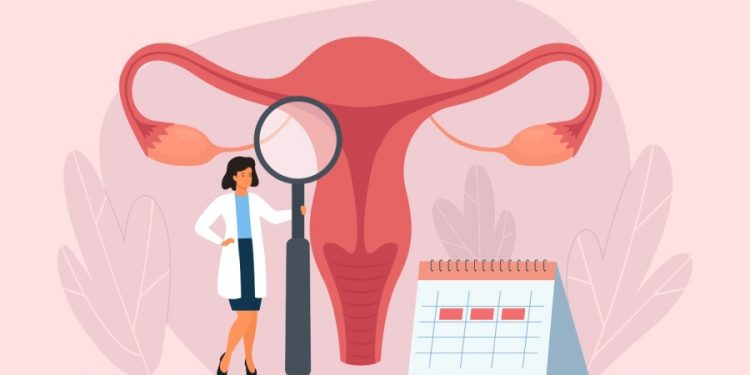Since early in the pandemic, women have reported experiencing changes in their menstruation after they got COVID-19 or were vaccinated against it.
Their cycles had gotten longer, some said. Their bleeding was heavier.
Research has backed up those anecdotal reports, showing COVID-19 vaccination having a temporary but noticeable impact on women’s periods and their accompanying symptoms.
Here is what we know.
Getting vaccinated appears to temporarily lead to longer cycles
Several recent studies have found that the length of people’s menstrual cycles can increase by up to a day immediately after they get vaccinated.
A study of almost 4,000 women in the U.S. found that menstrual cycle lengths were extended by about 0.7 day after a first dose and 0.9 day after a second dose. Though the cycles were longer overall, however, researchers did not find a change in how many days women’s periods lasted.
An even larger study of nearly 20,000 women in the U.K. found a similar effect on overall cycle length, but also noted that it was extended for longer in people who got both doses of a vaccine within the same menstrual cycle. For these individuals, their cycle length increased by an average of 3.7 days.
A paper published on Jan. 7 in the Journal of Infection and Chemotherapy reinforced that finding with new data. The authors calculated the difference between predicted and actual menstrual cycle lengths in women in Japan before and after COVID-19 vaccination. Before women were vaccinated, the average difference was about 1.9 days. After two doses of a vaccine, it could be as high as 2.5 days. The change was more pronounced in people who received two vaccine doses within the same cycle, with that group seeing an average difference of 3.9 days.
The changes may also not affect everyone uniformly beyond the disparities seen with more or fewer doses. Some people may be more likely to experience disruptions to their cycles than others. One study using long-term data from the Nurses’ Health Study based in the U.S. and Canada found that these increases in cycle length were more likely to occur for women whose periods were short, long or irregular before vaccination.
The studies found that most people’s menstrual cycles reverted to normal after one or two cycles.
Vaccinated women may also see other period-related symptoms more often
Another recent study indicates that women may be more likely to experience a range of symptoms accompanying their periods after getting vaccinated.
The study, published December 28 in the journal Influenza and Other Respiratory Viruses, analyzed data from nearly 5,000 women in six Arab countries and found that vaccinated individuals had more frequent back pain, nausea, tiredness, pelvic pain, unprescribed analgesics use and passage of loose stools in connection with their menstruation compared to unvaccinated individuals.
Vaccinated people also reported heavier flow and more days of bleeding, according to the paper.
The authors note that more data is needed to confirm these findings.
The potential effect of COVID-19 infections is less clear
The study based on long-term data from the Nurses’ Health Study noted that COVID-19 infection did not affect cycle length in its cohort.
Other studies with small sample sizes, however, have reported that a low percentage of people may experience cycle changes after an infection.
What does all this mean?
Research suggests that the changes to menstrual cycle length may be happening because of how the immune system might affect sex hormones. Inflammatory responses to the COVID-19 vaccine may also affect the ovaries and uterus.
Beyond the apparent impact on menstrual cycles and symptoms, however, it’s still uncertain whether COVID-19 vaccines do affect fertility and reproductive health. Initial studies suggest that COVID-19 vaccination may not affect fertility.
More studies with larger sample sizes and longitudinal datasets, where researchers follow up with individuals and link their data through time like with the Nurses’ Health Study, would help improve understanding of how the vaccines affect both men’s and women’s bodies and reproductive health.
Overall, research suggest the benefits of vaccination could outweigh the risks when it comes to reproductive health.
For instance, pregnant people who are not vaccinated may be at higher risk for poor outcomes, as medical experts outlined in a review paper published Jan. 12 in the journal Archives of Gynecology and Obstetrics. The experts detailed that such people were found to have higher rates of hospitalization, critical care admissions and morbidity rates than their vaccinated counterparts.















